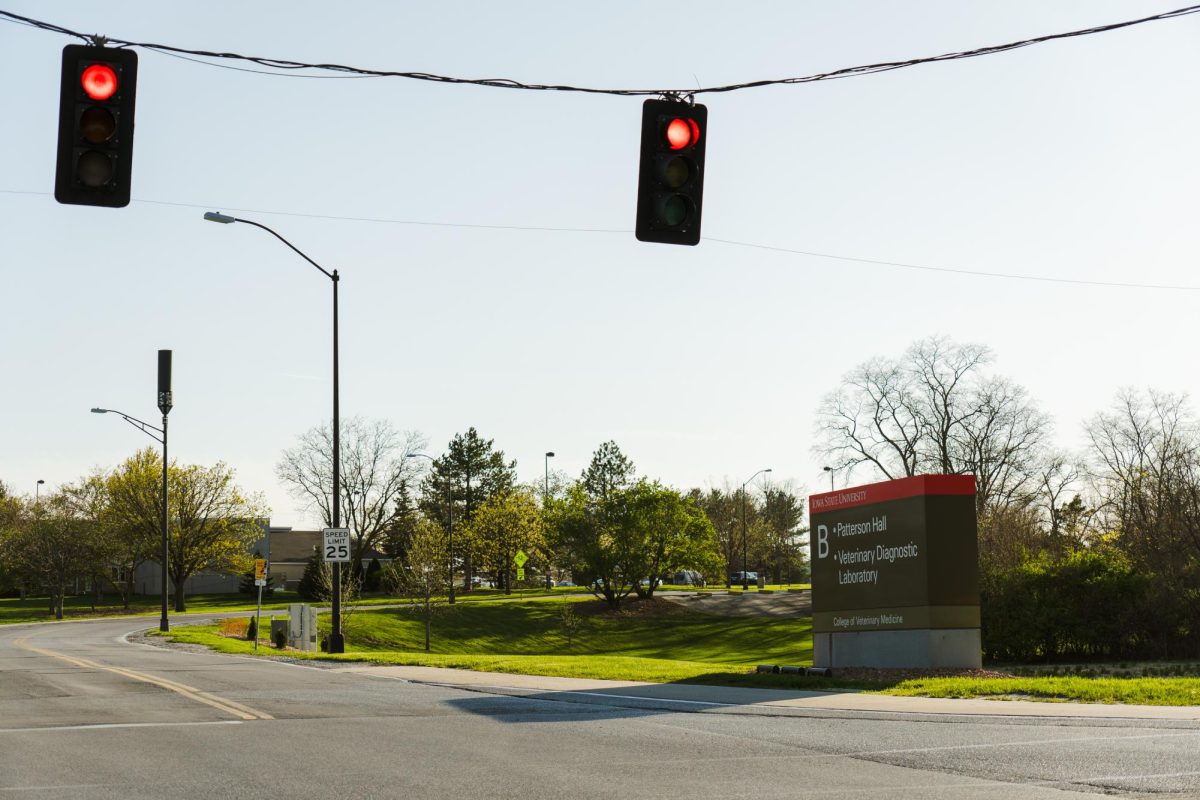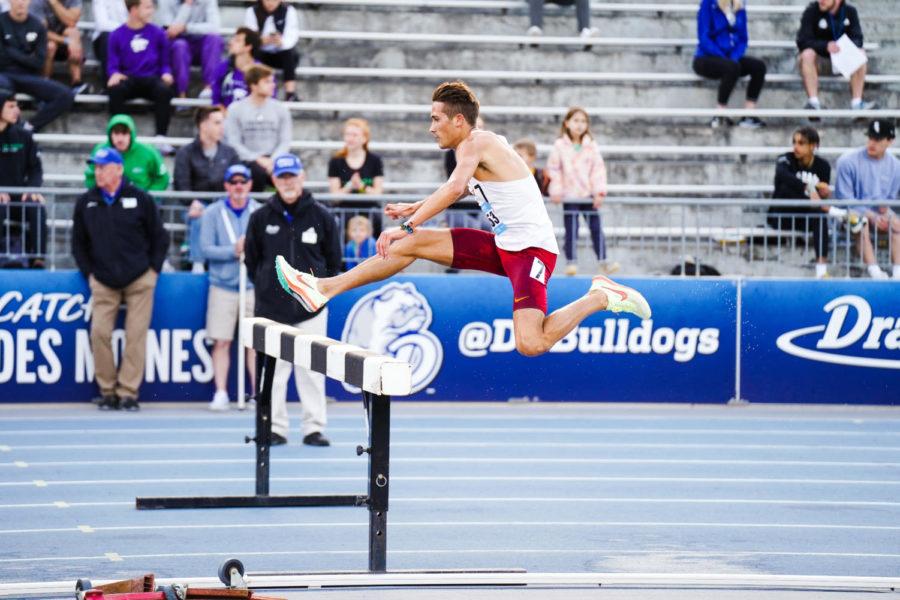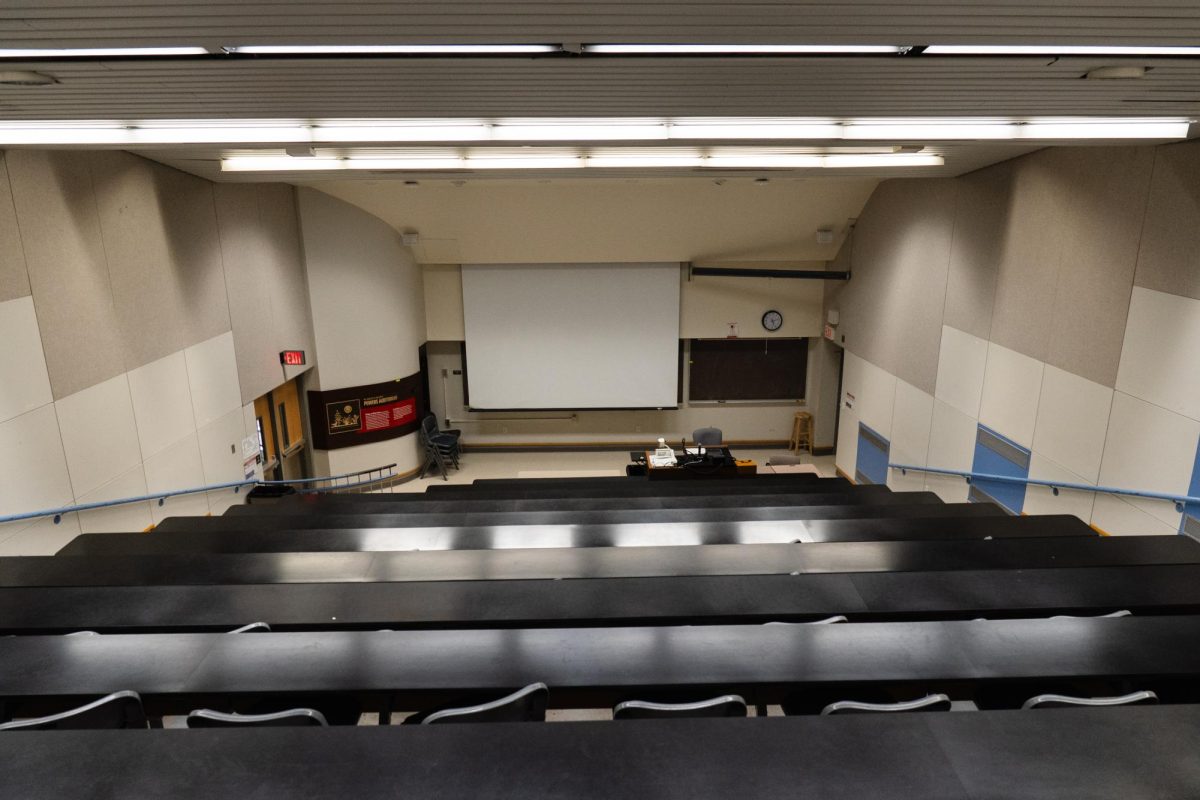Board of Regents approves operating appropriations for 2010
December 10, 2010
Based on proposed spending and funding plans, the Iowa Board of Regents approved the identified higher education operating appropriations requests for fiscal year 2012, totaling $493.5 million.
The operating appropriations request was passed in September by the board and set the Higher Education Price Index median at 3.1 percent.
The appropriation request includes $1.5 million for an agriculture experiment station and $1 million toward cooperative extension services.
The request also includes $5 million toward economic development operating appropriations, which would potentially fund the ISU Institute for Physical Research and Technology, the Small Business Development Centers and the ISU Research Park.
A budget memo, also released in September by the university, requests that the Regent schools participate in the state salary appropriation pool.
Ellen Rasmussen, associate vice president of budget and planning, said the university hasn’t been able to participate in the salary appropriation pool for at least five years.
“After two years with none to very minimal salary increases for faculty and professional staff, it is imperative that salaries be improved to maintain competitiveness with regional and national peers,” according to the budget memo.
Recently, Sen. Herman Quirmbach, D-Iowa, spoke about funding to the ISU Ambassadors.
Quirmbach said Iowa State asked for about $15.1 million in increases in appropriation requests.
The single biggest issue in higher education this year is the budget, Quirmbach said.
He said if Gov.-elect Terry Branstad cuts 15 percent of the budget as he said he was going to, Iowa State would suffer a loss of $33 million. Iowa State is receiving approximately $220 million per year through state appropriations.
“Let me translate it for you,” Quirmbach said. “If they make up for it by raising undergraduate tuition, that would increase the cost of a four-year degree by $6,000.”
He said the average student debt is about $30,000, one of the highest in the nation, then asked if students would want to add another $6,000 to that.
Rasmussen said the only way this would happen is if there is “a dollar-for-dollar replacement. We don’t look at it that way.”
Rasmussen said the university does take into account what may happen in the legislature.
“In a year like this year with all of the rhetoric back and forth that’s happening, we look at a range of options. We try to guess and then we wait until the legislature does its work,” Rasmussen said. “We then think about how do these other revenues apply.”
She said you have to look at tuition like you are a consumer.
“It could be too much and have the opposite effect … If the price goes up too high, you are not going to buy it. It’s not useful in terms of balancing a budget … We always challenge ourselves first,” Rasmussen said.
Quirmbach said another issue the state needs to focus on is young people moving out of Iowa.
“What sense does it make to invest in education only to pump the graduates out of the state to better paying jobs?” Quirmbach said.
He said if the university has a cut in state funding, a big part of that will come from higher undergraduate education and is a story no one wants to hear.
Quirmbach doesn’t understand some of the arguments coming from across the aisle because October estimates were running at nearly a half-billion dollar surplus.
“There is no justification for cutting money in the current year,” Quirmbach said.
He said he would favor dipping into the reserve funds, which total about $800 million until the economy gets going again.
“It’s not going to be a generous budget … In my book it’s counterproductive as far as I’m concerned,” Quirmbach said.
He said he would also be in favor of re-establishing funding for work study programs.
There is supposed to be $2.75 million in state funding for work study, but that money hasn’t been there for years, Quirmbach said.
He said there is about $1 million in the work-study program.
“It’s a great program, but I’m not real optimistic about getting that done,” Quirmbach said. “A big fight is avoiding further cuts.”
He said he would like to figure out how to deal with sales taxes on textbooks.
“If you go across the street to buy textbooks, you get charged sales tax and you can’t get it back. At the University Book Store, you’re not supposed to pay tax, but they force you to, then you have to go through a lot of crazy paperwork to get it back,” Quirmbach said.
He said the Government of the Student Body at Iowa State has been the most successful of the three regent universities on getting students to file for refunds.
Quirmbach said students at the University of Northern Iowa are out of luck because they don’t have a university bookstore.
“If we’re going to have a sales tax exemption on textbooks, let’s just do it,” Quirmbach said.
He said it would cost about $3 million to grant the exemption, so he’s not optimistic about getting that passed either.
Quirmbach mentioned some departments are suffering due to the budget cuts, including sociology and some programs in the College of Human Sciences.
“With this kind of a cut, there is no more fat to trim. It would mean cutting meat and muscle and bone,” Quirmbach said. “The one graph that is really scary to me shows financial contribution from tuition and state appropriations. Last year they crossed.”
The graph was created by the Regents and has 54.4 percent of general education coming from tuition, while state appropriations make up 39.7 percent of the budget in 2011.
The graph begins in 1981 with 20.8 percent coming from tuition and 77.7 percent coming from state appropriations.
He said cutting public education is probably his least favorite option.
“I’m not saying that just because I represent this district,” Quirmbach said.
Quirmbach said if Iowa wants to earn and consume on a competitive level, “we’ve got to be able to do stuff that nobody else can do, more high quality than anyone else can do. Higher education funding shouldn’t be a partisan issue.”
“A lot of the time it is made to be one and that’s unfortunate,” Quirmbach said.
















